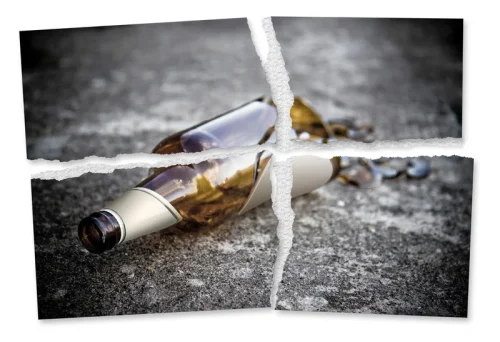
According to the National Institute on Alcohol Abuse and Alcoholism (NIAAA), symptoms usually start six hours after cessation, alcohol withdrawal syndrome symptoms peak within 24 to 72 hours, and improve within seven days. Men are more likely to develop alcohol dependence due to higher tolerance, while women are at greater risk of alcohol-related harm because of lower body water content and slower alcohol metabolism. Symptoms of Wernicke encephalopathy include delirium, cognitive impairment, and altered coordination (ataxia). If you’re addicted to alcohol and stop drinking, your brain will need time to adjust, and it’ll react adversely to the sudden change. Research also notes that an intravenous administration of benzodiazepines can help decrease the risk of delirium tremens. Contact your state’s mental health/substance use agency for more guidance on how to afford rehab.
- Sweating, nausea, and an elevated heart rate result from the autonomic nervous system’s overactivation causing the body to respond as if under stress.
- Whether you are struggling with addiction, mental health or both, our expert team is here to guide you every step of the way.
- Outpatient detox programs like Eleanor Health can help you manage symptoms and monitor your progress without disrupting your daily routine.
- Over time, repeated use can lead to tolerance, dependence, and withdrawal symptoms upon discontinuation.
Factors That Impact the Severity of Withdrawal Symptoms
The most effective approach is medically supervised detoxification, which involves tapering alcohol intake or using medications such as benzodiazepines to manage withdrawal symptoms safely. This allows the brain and body to adjust without extreme neurochemical imbalances. Nutritional support, hydration, and supplementation of vitamins, particularly thiamine (Vitamin B1), also help reduce withdrawal severity.
Complications

On top of the medical care mentioned above, psychological support and proper addiction treatment are also essential in treating alcohol withdrawal and addiction. Medical detox for treatment of alcohol misuse is provided through both heroin addiction inpatient rehab and outpatient treatment centers. The treatment option you select will usually depend on previous alcohol abuse, the amount of alcohol consumed during your addiction, and any co-occurring health concerns.

The First Week (3-7 Days)
- As your body and mind start to adjust to sobriety, you’ll enter the early recovery phase.
- In this stage, the person experiencing withdrawal will endure the most severe symptoms.
- The first few hours are when the initial withdrawal symptoms set in as your body attempts to adjust to the absence of alcohol.
- Anticonvulsants may also be used because there is a chance you can experience an alcohol withdrawal seizure during the peak of your symptoms.
Alcohol, a CNS depressant, stimulates the GABAergic system and, in acute intoxication, causes a range of clinical manifestations such as disinhibition, euphoria, and sedation. If you have alcohol use disorder and want help, a healthcare provider can guide you to resources and rehabilitation programs to help you quit. Know that your provider will be there to support you, not to judge you.
- In extremely rare cases some individuals may experience a condition known as post-acute withdrawal syndrome (PAWS), where symptoms such as fatigue, irritability, and mood swings can persist for months.
- One of the ways you can do this is to build coping skills and resilience.
- On top of the medical care mentioned above, psychological support and proper addiction treatment are also essential in treating alcohol withdrawal and addiction.
- Incorporating relaxation techniques, such as yoga and meditation, can also make the recovery journey easier.
As your body gets used to no alcohol, different treatments can make you more comfortable and keep your symptoms from getting worse. Symptoms are often at their worst between 24 and 72 hours after you stop drinking. For women, heavy drinking means four or more drinks on any day or eight or more drinks per week. Research shows people who have a supportive social network are more likely to remain alcohol-free after withdrawal. Those with a wider circle of support have a better chance of staying sober. It’s important to be honest about your alcohol use — and any other substance use — so your provider can give you the best care.
